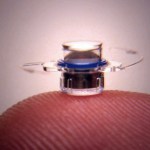health
[More about sex,, humour; sex, humor.]
One of the perks of keeping a well-visited blog is that you get to spy on people using search engines. Extreme Tracking keeps a list for me of the latest search terms which have led people to Aard. It turns out that they're always largely porn surfers. My entry about the German locksmith who has four children with his long-lost sister / common-law wife attracts continual interest from people who are probably really disappointed to find nothing prurient there. And there's always the people who mistype "big booty" and end up at my entry about Iron Age…
A recent paper provides the groundwork to establish a way for exercise to diminish appetite. Or, more likely, for sedentary behavior to increase appetite.
It is well known that exercise burns calories. Personally, I think that's overrated: Strength building raises your metabolic demand, and THAT burns calories. But that is not the main topic at hand. New research indicates that exercise also increases the sensitivity of neurons that are related to the control of the feeling of satiation. Therefore, you feel full rather than hungry sooner and/or more often.
In rodents. So far.
The…
The question is being asked, Will Cardiovascular Disease Prevention Widen Health Inequalities? in a Policy Forum essay in the OpenAccess Journal PLoS Medicine.
Here is the executive summary from the article:
The primary prevention of cardiovascular disease (CVD) is dependent on the effective reduction of the major risk factors for CVD, particularly tobacco control and a healthier diet.
The high-risk approach to prevent CVD typically involves population screening. Those exceeding a risk threshold are then given lifestyle advice and/or tablets to reduce blood cholesterol and blood pressure.…
I just thought I'd pass on this letter from Rush Holt to Nancy Pelozi and Steny Hoyer:
Dear Speaker Pelosi and Majority Leader Hoyer:
In light of the troubling ruling this week that blocks federal funding for stem cell research, I am writing to request respectfully that you bring the bipartisan Stem Cell Research Enhancement Act of 2009, H.R 873, or similar legislation to the floor of the House for a vote at the soonest possible date.
As a scientist, I was honored to attend the White House Ceremony where President Obama signed the executive order lifting the eight year ban on federal…
After I reported this recent and interesting research paper about urinary tract inflictions, a number of conversations broke out on that post, on my facebook page, and via email, and some of these conversations raised the question of cranberry juice and whether the idea that it prevents, reduces, or shortens the duration of UTIs is real or woo.
Added: After further discussion elsewhere, I would like to clarify what is being asked here: Imagine you are a person who drinks apple juice and cranberry juice as your main hydrating substance. Also, you are are a person who is concerned with…
Chronic infection is, in a way, the new emerging infectious disease. Many pathogens are relatively tenacious when they infect elderly individuals or individuals who are otherwise not fully immunocompetent, and such individuals are, thanks to modern medical technology and practice, more common in the population. Resistant bacteria can cause chronic infection. It is interesting to see more research oriented specifically towards the problem of chronic infection as a problem in and of itself, and a paper just out by Hannan, Mysorekar, Hung, Isaacson-Schmit and Hultgren, in PLoS Pathogens, is…
In the podcast liner notes to his new album (starting at 14:21), George Hrab talks to Milton Mermikidis for a space about how neither of them does any heavier drugs than caffeine. I realised that in close to five years of blogging, I've never talked specifically about my own drug abstinence, though I've mentioned a few times that I'm tee-total. So I thought I might say a few words on the subject.
The culturally accepted heavy drug in Sweden is alcohol, which is strongly mind-altering if used in a sufficient dose and lethal if overdosed. Drinking is so common here that if you don't, then it…
Neurodegenerative diseases (i.e. Alzheimer's and Huntington's) often involves the formation of aggregates of proteins in a patients' brain, correlated with the process of degeneration. Some of these proteins are unique to the specific disease and others are commonly found in healthy individuals but also occur intertwined with the disease-linked types. Until now, these "common proteins" were thought to be an effect of sampling the tissues and were ignored as background. A new paper out today in PLoS Biology suggests, however, that these protein aggregates may be linked to aging. The main…
Untrained people (that would be YOU) often fail to recognize drowning. In this way, people often drown mere feet away from those who could rescue them. One in ten children who will drown this year will drown with their parents watching the process, not knowing what they are looking at.
The Instinctive Drowning Response - so named by Francesco A. Pia, Ph.D., is what people do to avoid actual or perceived suffocation in the water. And it does not look like most people expect. There is very little splashing, no waving, and no yelling or calls for help of any kind. To get an idea of just…
The anopheles mosquito, Anopheles gambiae, is the primary vector for human malaria. Mosquitoes in general, the A. gambiae included, find their prey by tracking body odor exuded from the breath and skin. Apparently, the composition of body odor determines A. gambiae's preference for one individual over another. It has been known for some time now that A. gambiae preferentially seek out and draw blood from pregnant women (Linsay et al 2000; Ansell et al 2002; Himeidan, Elbashir and Adam 2004), preferring pregnant over none pregnant women at about a 2:1 ratio.
Researchers working in Burkina…
My grandmother suffered in her old age from macular degeneration, a common age-related eye disease that causes the center of your visual field (the macula) to gradually fritz out. As it affected her more and more, the font size in her emails ballooned to cartoonish sizes. She began walking with a cane, and needed a fancy electronic doo-dad to tell her when her cup of tea was full. By the end of her life, she was totally blind.
Watching my grandmother wink out from the world of seeing was tragic; the knowledge of macular degeneration's heredity terrifying. Relatives of those who have…
tags: The Oil Spill's Unseen Culprits, Victims, health, environment, ecology, pollution, oilspill, BP, acidification, Gulf of Mexico, dispersants, Carl Safina, TEDTalks, TED Talks, streaming video
The Gulf oil spill dwarfs comprehension, but we know this much: it's bad. Carl Safina scrapes out the facts in this blood-boiling cross-examination, arguing that the consequences will stretch far beyond the Gulf -- and many so-called solutions are making the situation worse.
TEDTalks is a daily video podcast of the best talks and performances from the TED Conference, where the world's leading…
Clearly, transparency is critical but how much does the source of funding matter if it is fully disclosed?
Among the scientific community, government funded research is generally considered trustworthy and as a benefit for the public good. Still, that view is not universal. I have been accused of "taking government funding" for my research (which is funded entirely from government sources: DOE, NIH, USDA, and NSF). The person asking clearly felt that the US government was not to be trusted and therefore the research funded by the US government was not to be trusted. But what is the…
tags: Following The Mercury Trail, health, environment, ecology, pollution, PCBs, DDT, heavy metals, red tide, human sewage pollution, Stephen Palumbi, TEDTalks, TED Talks, streaming video
There's a tight and surprising link between the ocean's health and ours, says marine biologist Stephen Palumbi. He shows how toxins at the bottom of the ocean food chain find their way into our bodies, with a shocking story of toxic contamination from a Japanese fish market. His work points a way forward for saving the oceans' health -- and humanity's.
TEDTalks is a daily video podcast of the best talks…
And by faithing it, I mean using faith rather than critical analysis of the available information to make important decisions about what to regard as valid.
Let's do a couple of informal experiments to explore this issue more closely. For the present discussion, I'm assuming that you are a non-scientist and non-medical person who self identifies as a skeptic.
Do you know the following terms, without looking them up (which you can do, in part, by clicking on them)? In some cases you may be able to guess meanings, in some cases you may have a vague idea from prior reading. But that's not…
By now, readers of Obesity Panacea have hopefully learned that excess weight is not directly predictive of health risk, and that excess fat mass is not in itself unhealthy. Recall that approximately 30% of individuals who are classified as obese by their body weight turn out to be metabolically healthy, and in fact seem not to get much metabolic benefit (or may even get worse) when they lose weight. Also consider that individuals who have NO fat tissue (e.g. lipodystrophy) have extremely elevated metabolic risk factors, meanwhile others who can apparently indefinitely grow more fat mass (…
"Vision is not enough, it must be combined with venture. It is not enough to stare up the steps, we must step up the stairs." -Vaclav Havel
It's arguable that vision is the most important tool that an astronomer can have. This was particularly important back before the invention of the telescope, as the greatest astronomers of their time (like Tycho Brahe) were renowned for their visual acuity.
How do you stack up? You were curious about learning how good your hearing was, but what about your vision? Well, you can always get your vision tested using a Snellen eye chart, and read the bottom-…
Last year I visited Ben Goldacre in his secret offshore nerdbase to talk about science. While there we set up the famous Barbie Detox experiment as described in his book Bad Science. In this short video Ben talks about why the bogus idea of detox is harmful not just for our bodies, but our understanding of health. Says Ben: "The answer, from the future king of England, to your health problems is a fucking magic potion. It's like something out of a fairy tale!"
So I had the pleasure of meeting the awesome Dr. Isis a few weeks ago. It turns out she is even more awesome in person than she is in pseudonymity. And she brought me a fabulous thing: a scarf from A Slice of Life Scarves. Creator Eve Reaven, a Bay Area cell biologist, "has continuously marveled at the intricacy and beauty of the natural patterns found inside cells. She shares what she has seen with others through designs for scarves and other textiles. In the current selection, she captures the essence of structures related to cell movement, cell traffic, energy and performance. Many of the…
Lately Ms. Humble of Not So Humble Pie, "your typical nerdy biological anthropologist turned stay at home mom and baker of sometimes strange goodies," has cornered the market on science cookies. Check out her beautiful gel electrophoresis cookies (above): they are amazingly convincing AND ethidium bromide free (thank goodness). She's also made drosophila melanogaster cookies, zebrafish cookies, circuit board cookies:
wii-mote and Six axis controller cookies (not science, but come on, gamers and scientists have a high overlap), and blood cell cookies. Check out this educational video using…



